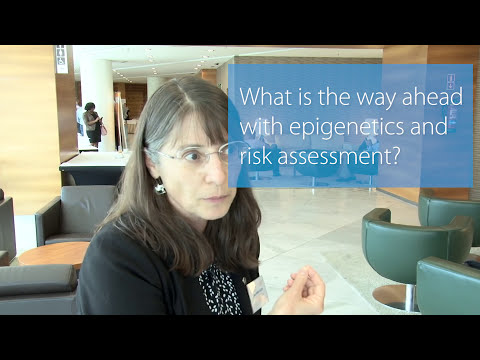EFSA Scientific Colloquium N°22 ‘Epigenetics and Risk Assessment: Where do we stand?’

Epigenetics and risk assessment: EFSA’s scientific colloquium charts way ahead
“We have identified what we do know and what we don’t know. And that is a big achievement,” Prof Sandra Ceccatelli of the Karolinska Institutet in Stockholm, Sweden, said when concluding EFSA’s scientific colloquium on epigenetics. The meeting had set out to take stock of the existing knowledge on epigenetics and identify data gaps, research needs and the potential contribution of epigenetics to risk assessment.
The issue of epigenetics and its impact on human health and life span was prominently discussed at EFSA’s second scientific conference “Shaping the future of food safety, together” in October 2015. About 100 scientists, risk managers and policy makers from 20 countries including five non-EU countries met in Valencia, Spain, on 14 and 15 June, to continue this discussion and to look at the potential role of epigenetics in risk assessment.
What is epigenetics?
Epigenetics is a relatively new scientific field and scientists are still debating what it really entails. What we know is that epigenetics involves changes surrounding the DNA in cells that affects how genes are read but without changing the underlying DNA sequence.
Prof Kevin Chipman of the University of Birmingham said: “Epigenetics is a very important aspect of normal physiology. It’s something very important for us to control the way in which we adapt and respond to our environment.”
Increasing evidence suggests that external factors such as individual lifestyle, diet and environmental stressors affect epigenetic processes. As a result, physical appearance, longevity, health and the susceptibility to disease may be altered with potentially beneficial or adverse effects.
Potential role of epigenetics in risk assessment
The overall objective of the discussions was to identify the potential role of epigenetics in food safety risk assessment. Dr Diane Wray-Cahen of the US Department of Agriculture said: “Will epigenetics add to the current way we analyse the risk of particular hazards in food? We don’t know the answer to that yet.”
Discussion groups
In dedicated discussion groups, participants addressed various issues including: whether or not epigenetic processes should be considered in risk assessment; the need to address molecular mechanisms, methods to investigate epigenetic effects and the use of epigenetic biomarkers; as well as the need to identify existing data gaps and research needs.
Some recurring themes emerged in all discussion groups such as the potential reversibility and trans-generational effects of epigenetic changes, as well as the need to differentiate between protective adaptive epigenetic changes and adversity. Experts also discussed the issue of cause or consequence: when are epigenetic changes causing adverse effects and when are epigenetic changes consequences of adverse effects caused by exposure to a chemical.
Take-home questions
The main take-home message from the colloquium was to ask and seek answers to those questions that will increase our understanding of epigenetics. What do epigenetic modifications mean? How do we study them? What is the size of such modifications that we need worry about? Dr Robert Feil of the National Centre for Scientific Research (CNRS), France, said: “We have had some very good discussions and I think this will certainly help us to formulate more precisely what these questions are and to formulate how we want to go ahead.”
Where do we stand?
Referring to the scientific outcome of the colloquium Prof Ceccatelli said: “We know what needs to be done in the future. We have identified the way on how to proceed.” In closing she stressed that cooperation and collaboration between the various scientific disciplines and with the clinical side of epidemiology are necessary strategic elements to improve scientific risk assessment.
Webcast
Programme
Discussion groups briefing notes
Presentations
Verhagen (EFSA): Welcome and introduction to the colloquium
Chipman (University of Birmingham, UK): Impact of epigenetics in environmental risk assessment